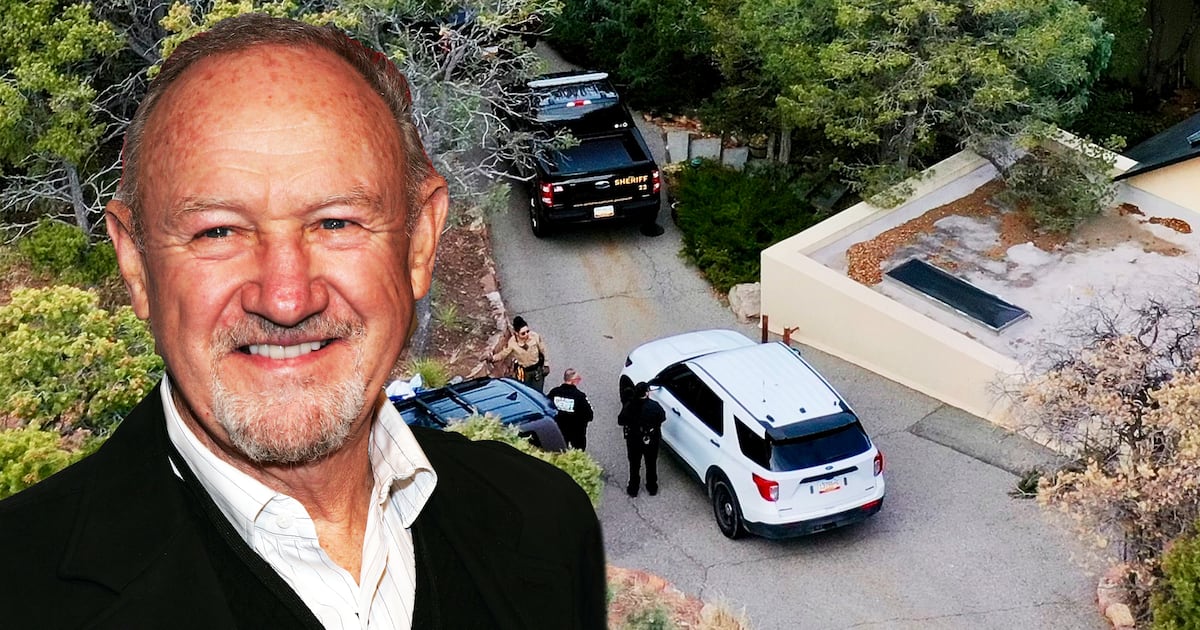If you are a MAGA Republican who is hoping to remake the party in Donald Trump’s image, you might be tempted to look at Speaker Mike Johnson’s recent comments and observe (as Barack Obama infamously did a few years ago) that the 1980s called, and they want their foreign policy back.
In case you missed it, Johnson—who is taking heat for saying he now supports funding bills for Ukraine, Israel, and Taiwan—recently invoked Ronald Reagan to buttress his support for foreign aid. “I’m a child of the ‘80s,” Johnson told CNN’s Jake Tapper. “I regard myself as a Reagan Republican. I understand the concept of maintaining peace through strength. That’s one of our guiding principles...it’s a big part of our party and our worldview.”
Not everyone is happy about Johnson’s support for Ukraine (to fend off Russia’s invasion). In fact, Rep. Marjorie Taylor Greene (R-GA) and Rep. Thomas Massie (R-KY) are threatening to oust him from his speakership over it, and another hardliner was overheard calling Johnson “tubby” during a heated exchange on Thursday.
Johnson’s Republican adversaries are so distrustful of him that, according to Politico’s Olivia Beavers, they have created something called the Floor Action Response Team (FART), which “aims to guard against a voice vote or unanimous consent vote where action could be stealthily taken against them and their members.”
As Semafor’s David Weigel quipped, “The Floor Action Response Team operates in silence—but its actions can be deadly.” There’s no telling if Republicans will be able to clear the air.
It’s not just what Johnson said that has riled the MAGA right, but how he said it. The normally mild-mannered Johnson has suddenly become defiant in the face of adversity.
That, coupled with him sounding like a committed internationalist, has sparked attention from his detractors and newfound fans, alike.
As a backbench congressman, Johnson opposed funding Ukraine—a position that put him in the same category as that of his current tormentors.
Indeed, Johnson’s ascension to speaker was largely premised on the notion that he would be the vessel for Trumpism in the House leadership. Based on his record, Rep. Matt Gaetz (R-FL) even dubbed him “MAGA Mike Johnson.”
So what explains Johnson’s change of heart regarding Ukraine? One theory holds that, upon being elevated to power, some people suddenly mature as they recognize the awesome responsibility of leadership, à la Thomas Becket.
There may be some element of that phenomenon at work here. But I think it is combined with something else: the enduring power of Reaganism.
On one hand, it’s not surprising. From 1980 until 2016—a 36-year span—Reagan’s optimistic conservative philosophy dominated the Republican Party. (Sure, other leaders and voices—Newt Gingrich, the Bushes, Rush Limbaugh—were prominent, but they all existed in the context of the Reagan era.)
On the other hand, Trump has dominated the GOP for the last nine years, as Reaganism was in full retreat on the right.
During this time, seeds have been planted that will impact future generations. There are 18-year-olds today who really haven’t known a pre-Trump Republican Party. These young Republicans have, no doubt, internalized Trump’s style and (to the extent he has a coherent philosophy) policies. In this regard, Trump’s legacy will surely outlive him.
Likewise, Reaganism abides, even while mostly dormant these last few years. For an earlier generation of Americans (Johnson was born in 1972—just eight years before Reagan won the first of his two presidential terms), Reagan’s worldview was deeply embedded in their psyches at a formative time.
“For Johnson to say he’s a Reagan Republican is—it’s not redundant—but it’s prima facie self-evident,” Reagan biographer Craig Shirley told me, “because the Republican Party still is Reagan’s party, because [the issues that animate today’s GOP] are Reagan’s issues… It’s still an internationalist party.”
As to the growing chorus of isolationist voices in today’s GOP? “They’re prominent, but they are still lonely voices in the wilderness,” Shirley noted.
To be sure, a political realignment has begun; however, Reaganism remains an enduring force with deep roots. MAGA loyalists who want to transform the GOP into an isolationist, nationalist party will have to contend with Reagan’s influence for years to come.
Trump’s minions are well aware of this. Initiatives like The Heritage Foundation’s Project 2025 have been inaugurated to identify and place fellow cult members (and blackball mainstream conservatives).
But this is a project that is best aimed at young people. For Republican politicians of a certain age who try to pose as Trumpy to capture the zeitgeist—from Mike Johnson to Mike Pence—it’ll be hard for MAGA to ever fully trust them with power.
One senses that most rank-in-file Republican members of Congress today, given the choice, would want to fund our allies. They may lack the courage of their convictions, and they may support the MAGA culture wars, but they are not deeply committed isolationists.
This presents a problem for MAGA’s attempt to replace old school Republicans and install new leaders. Upon being elevated to a leadership position, there is always the danger that their vestigial Reaganism will awaken, and some percentage of them will revert.
“Don’t trust anyone over 30” was once a maxim espoused by 1960s radicals and hippies. It might become yet another erstwhile leftist notion that gets co-opted by the Trumpian right.
Killing off Reaganism won’t happen overnight. If MAGA ever succeeds, it will have to be the result of a generational project.









